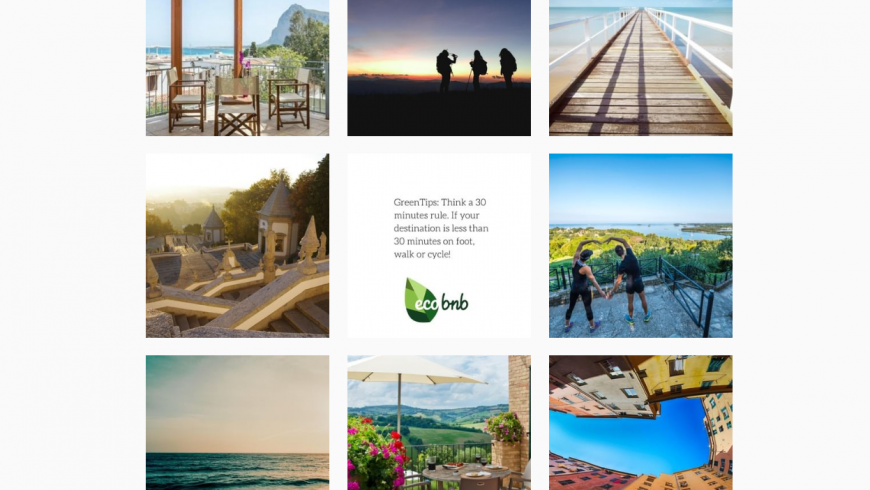When you’re running a blog, in any niche or industry, you need to be aware of two things. One – you have a ton of competition. Two – your audience will only stick around for as long as you’re giving them what they want. That means that you need to create a solid strategy that will help you succeed in blog writing. And, the same goes for writing a sustainable living blog.
If you think you need help with your sustainable living blog writing, just keep reading. We’ve prepared a list of effective tips that will help you boost your writing and bring your blog quality to the next level.
Let’s take a look at the tips on how to succeed in sustainable living blog writing.
1. Provide Valid Information

Sustainable living is not something you can write about based on your personal opinion. Your writing needs to rely on facts and be based on credible information your audience will find believable.
This is why you first need to decide the following:
- how will you be researching your blogs
- what sources of information will you consider credible
The best way to go is to trust sources such as:
- credible magazines
- case studies
- academic papers
- official institutions
So, choose to believe and share information you get from reliable and reputable sources. This way, you’ll build your reputation of being trustworthy and credible.
2. Stay Updated

Sustainable living is something that’s constantly growing, changing, and developing. New findings and trends are emerging almost every day, and it’s your job to follow these trends.
Your blog posts need to provide regular updates on the most important information that has been released or discovered. To achieve this, you need to:
- read extensively
- create a selection of website to read every day
- follow the experts and influencers on social media
For example, in the light of the COVID-19 pandemic, you could write about the brands making sustainable face masks for safe social distancing. Or, you could write about new eco-friendly means of transportation.
You need to be the link between your readership and the latest sustainable living news. Staying updated will make your blog the go-to resource for sustainable living enthusiasts.
3. Share Tips

The power of sustainable living is all about making the right choices and changing your daily habits for the better. And, while there are so many people who’d love to embrace it, it may seem hard or impossible to them.
That’s why you should show them the opposite.
Share practical and useful tips that your readers will be able to apply easily. For example, you could write about:
- how to reduce plastic waste in the household
- how to travel sustainably
- how to reduce your carbon footprint
- sustainable cosmetic products to use
- best green destinations
- where to find sustainable accommodation
Practical knowledge and real-life tips are why most of your readers will come to your blog. Give them tips, tricks, secrets, and hack that will make their change for sustainable living easy and comfortable.
4. Write Simply

How you write will impact your readers’ experience with your sustainable living blog. Writing simply is the best way to go, and here’s why.
When your readers come to your blog, they don’t want to think too hard or struggle with your content. They want the information you’re providing, and they want it fast. So, to meet their needs, you should write your blog simply:
- use everyday vocabulary
- write simple sentences
- avoid passive voice
- divide the content into short paragraphs
- create lists and use bullet points
- avoid technical terminology they don’t understand
So, the goal is to write a blog that will sound like you’re talking to a friend. There’s no need for a pompous vocabulary or poetic language. Just keep it simple.
5. Create Attention-Grabbing Title

People shouldn’t judge a book by its covers, but they do. In the same way, they shouldn’t judge your blog posts by the title, but they will.
When they search for information online, Google will give them a ton of results. And, if you manage to get your blog to be on the first page of the search results, you still have some competition left to beat.
So, use the power of a great blog title to win the attention of your target audience. Here’s what you can do to make your blog title stand out:
- use numbers: 15 Tips on How to Reduce Your Plastic Waste
- address your audience: 12 Eco-Friendly Fashion Brands You’ll Love
- promise a solution: 10 Surefire Ways to Buy Ethically
- use the words tips/tricks/ways/hacks/secrets: 7 Hacks For a Sustainable Bathroom
Your blog title needs to be very specific and tell the audience exactly what to expect if they read it. So, instead of using a title like “Zero Waste Gifts,” you should spice it up to something like “14 Ideas For Conscious Consumers to Buy Zero Waste Gifts”.
6. Spread Enthusiasm

Remember that sustainable living is such a beautiful thing that makes people happy, fulfilled, and in charge of their own lives. To inspire more people to try sustainable living, you should always write with enthusiasm.
That means that your blog posts should:
- keep a positive tone
- show the great sides of sustainable living
- invite people to try it
- share stories of people who are doing it
You must show sustainable living as the wonderful thing that it is.
Final Thoughts
Blogging about sustainable living is a challenge, but you can do it with the right strategy and love for the planet. Your readers need to learn from you and learn how to love living responsibly and sustainably.
Use the tips we’ve shared above to improve your blog writing skills and make your sustainable living blog a success.
Cover image: Photo by Nick Morrison on Unsplash





